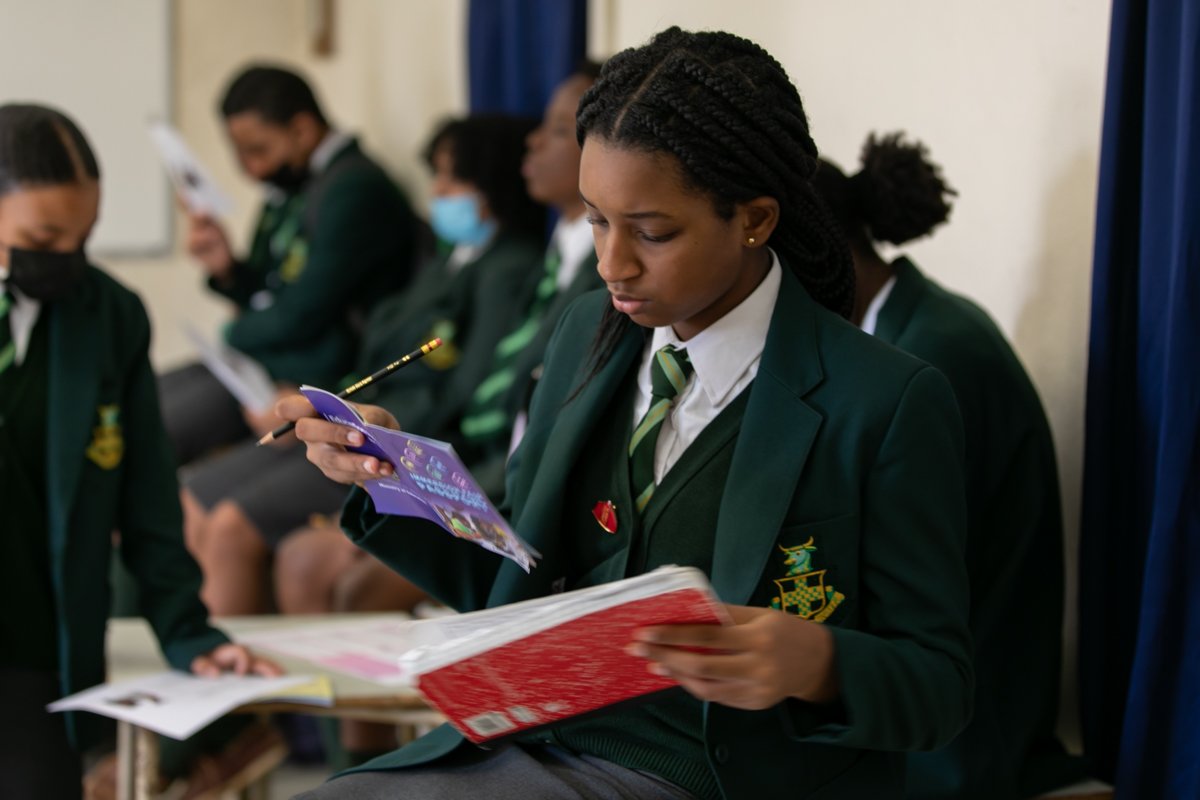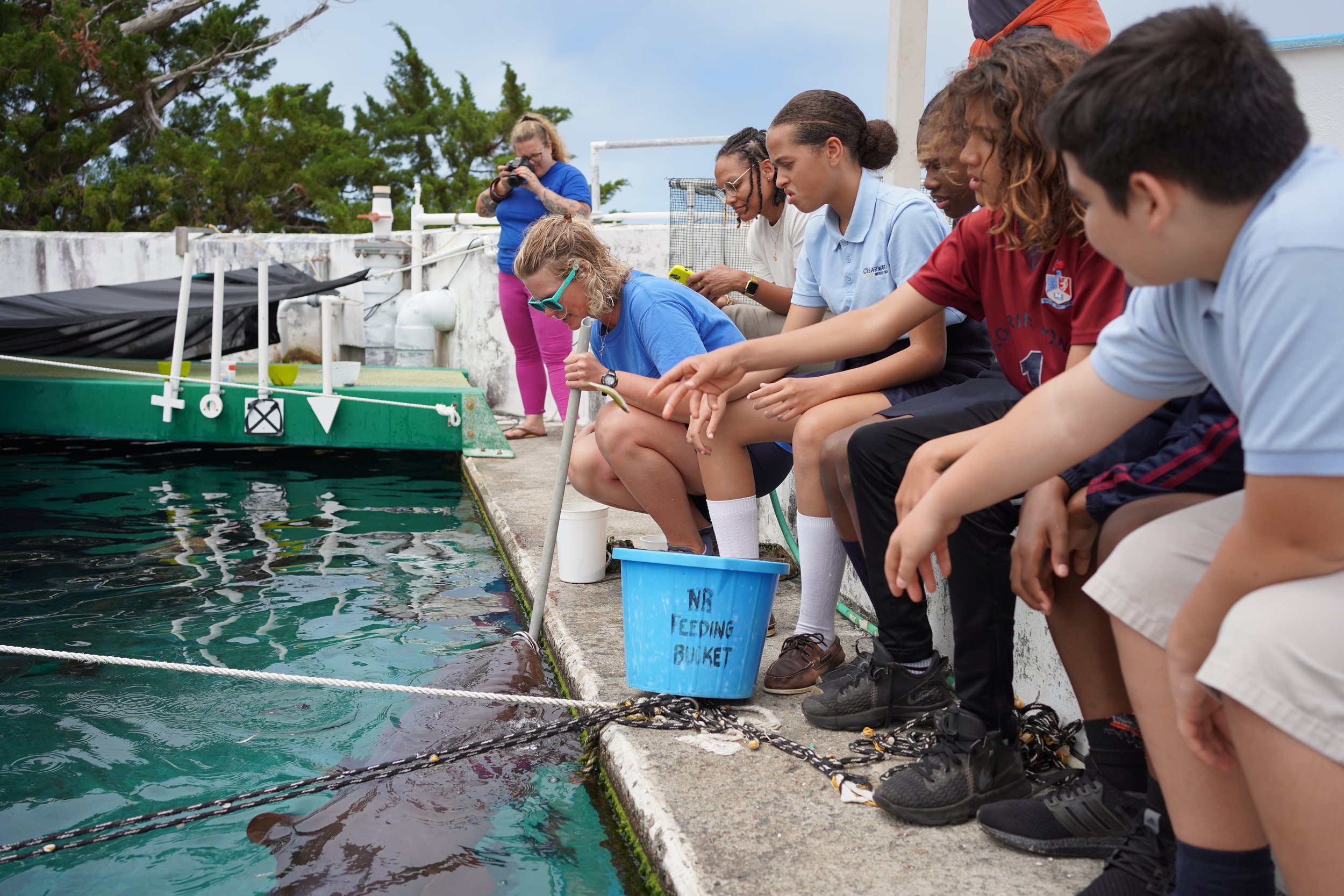Authentic, real world and meaningful learning experiences
The way students are taught, what they are taught and how they are assessed is changing. Find out what’s different here.
Following the opening of Bermuda’s first Signature Schools in September 2022, School Transformation Teams are now developing further Signature Learning Programs with educators, families, industry and community members.
Meanwhile, Parish Primary Schools have been working collaboratively to co-design curriculum and learning experiences for their P1 and P7 students. The curriculum codesign team have been using the Vision for Bermuda’s Public School System, their School Transformation Team’s respective Blueprints, the BPSS Curriculum Framework, LEGIT Pedagogical Model, and Assessment Policy to guide their design throughout this process.
We look forward to learning and sharing more throughout the 2023-24 academic year.
A 21st century approach to pedagogy (teaching practice)
The LEGIT Pedagogical Model is a research-based pedagogical framework that promotes 21st century skills and competencies. This framework was developed to help secure consistency in quality instruction and engagement across Bermuda’s classrooms.
LEGIT Learning is a set of student outcomes that includes mastery of essential academic content; thinking critically and solving complex problems; working collaboratively and communicating effectively; having an academic mindset, and being empowered through self-directed learning.
The LEGIT Pedagogical Model is designed:
To increase alignment of pedagogical practices system-wide (early years to senior level) that support LEGIT learning with greater precision and intentionality;
To establish clarity about LEGIT learning goals and practices so that educators, families, and students develop a shared understanding about LEGIT learning and the type of learners that we want to develop;
To increase access and opportunities that engage all learners, educators, schools, and communities in LEGIT learning; and
To create conditions and processes so that teachers and leaders can build their capacity to use LEGIT learning practices.
The Model aims to address a range of unmet needs within our current approaches to teaching and learning. Its goal is to ensure every young person experiences teaching and learning that engages, challenges and inspires them. To achieve this the framework promotes the use of high impact, evidence-based strategies and more hands on approaches that support project based learning, experiential and inquiry based pedagogies that integrate disciplines and enable teachers to make choices based on student/curriculum needs.
BPSS Guides
LEGIT PBL Model (previous System PD)
Helpful research
Thinkers, thoughts, tips and tools
John Spencer (bite sized videos that are worth your time)
5 Keys to Rigorous Project-Based Learning (video)
A student-centred curriculum
The student-centred, subject-based curricula offered in the BPSS is reflective of Bermuda’s current and future economic and social needs and status.
The curricula enables key global and core competencies, skills and knowledge students need to self-actualise. Learners will be prepared to participate as global citizens and work on a global scale. The daily schedule will allocate time for both formal and informal learning opportunities that engage and empower learners. All cultural voices will be respected and the curriculum will cater to learner needs, abilities and interests.
Importance and Potential impact
Learners will be active participants in student-centred opportunities as they pursue learning pathways based on their gifts, talents, skills and abilities. Each child will leave the BPSS having explored multiple languages to meet the demands of Bermuda’s international business sector and the wider global job market. Learners will experience a flexible learning environment, where as lifelong learners they understand the importance of learning beyond the traditional classroom and the importance of community partnerships.
The Bermuda Public School System (BPPS) supports the concepts of 'Assessment for Learning' and ‘Assessment as Learning’. These concepts underline the belief that effective assessment provides information to improve teaching and learning.
Students are given regular feedback on their learning; so that they can better understand what it is that they need to focus on to develop their skills and knowledge more effectively.
Through continuous assessment, teachers are able to adapt their teaching, using a detailed knowledge of each student. Parents / caregivers receive regular reports on their child's progress so that all stakeholders (family members, support agencies, community partners) are able to work together to continuously develop the capabilities of students to create college ready, career ready, civic minded members of our community.
BPSS Guides
Summary Slides for the Curriculum Framework
Helpful research
Defining New Models of Education
for the Fourth Industrial Revolution (January 2020)
Thinkers, thoughts, tips and tools
Creating and Reviewing Your Curriculum | PYP | Toddle (video /workshop)
Student-Centred Learning: Building Agency and Engagement
Assessment for and as learning
BPSS Guides
Helpful research
CSE Learning Education Series: Rethinking assessment in education: The case for change (April 2021)
Thinkers, thoughts, tips and tools
Designing student centred assessments | IB PYP | Toddle (video /workshop)
Designing success criteria: The key to powerful assessments | IB PYP | Toddle (video /workshop)
Assessment design criteria AITSL
Learn more about…
Inclusivity and cultural responsiveness
Developing active, visible members of the learning community who have positive relationships and are accepted for who they are…
Learning partnerships
Forming partnerships with industry and community to create deep and meaningful learning experiences…







